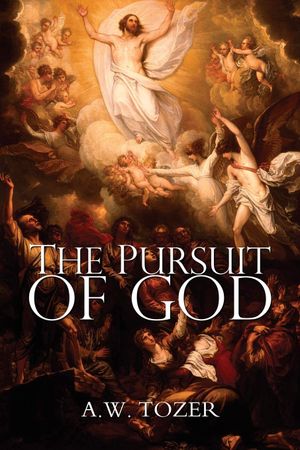Author: A.W. Tozer
Publisher: Tate
106 pages
Purchase from: Amazon
(£6.99)
One Friday evening in the early 1960s I made a rare visit to the Westminster Chapel Bible study. What I remember most about that evening is not the exposition of the episode to the Romans but the notices, during which Dr D. Martyn Lloyd-Jones recommended two books, one of which was The Pursuit of God by A. W. Tozer. Dr Lloyd-Jones claimed: ‘Dr Tozer is a man with the most spiritual message in the whole of the United States.’ Although I could ill afford the price of 15 shillings (75p) out of a weekly wage of £12 I bought both the recommended books. The other book was Henry Scougal’s Life of God in the Soul of Man which had so profoundly affected George Whitefield. A. W. Tozer’s book was to have a similar effect on me.
Aiden Wilson Tozer was born 21 April 1897 in New Burg, a tiny farming community in the hills of western Pennsylvania. His mother named him after the storekeeper husband of a close friend. He did not like his given names, preferring the initials ‘A. W.’ In later life he preferred just Tozer. In 1914 he was converted and five years later, without formal theological training, he began forty-four years of ministry with the Christian and Missionary Alliance. For thirty-one of chose years he pastored the Southside Alliance Church in Chicago, serving there from 1928 to 1959. Tozer edited the Alliance Life, the official weekly publication of his denomination, and his editorials subsequently became a series of best-selling books.
In the early 1960s I was very much involved in accurate exegesis and sound doctrine. As I turned the pages of The Pursuit of God I was brought up with a jolt when I came across these words: ‘The modern scientist has lost God amid the wonders of his world: we Christians are in danger of losing God amid the wonders of his Word. ‘I began to appreciate the possibility of pursuing truths about God rather than God himself. Tozer spoke of ‘those who, while they love the altar and delight in the sacrifice’, had not realized the absence of the fire. Sound Bible exposition and doctrine are indispensable, not as ends in themselves, but as the means of knowing the living God who himself is personal and real. We are to know him to the end that we love and worship him. Bernard of Clairvaux wrote:
We taste thee, O thou living bread,
And long to feast upon thee still;
We drink of thee, the fountain head,
And thirst our souls from thee to fill.
While in recent years I have had to pare down my library, I have hung on to Tozer as his books have been one of my lifelines to God, continually challenging my heart, white at the same time renewing its life
Eric Lane






